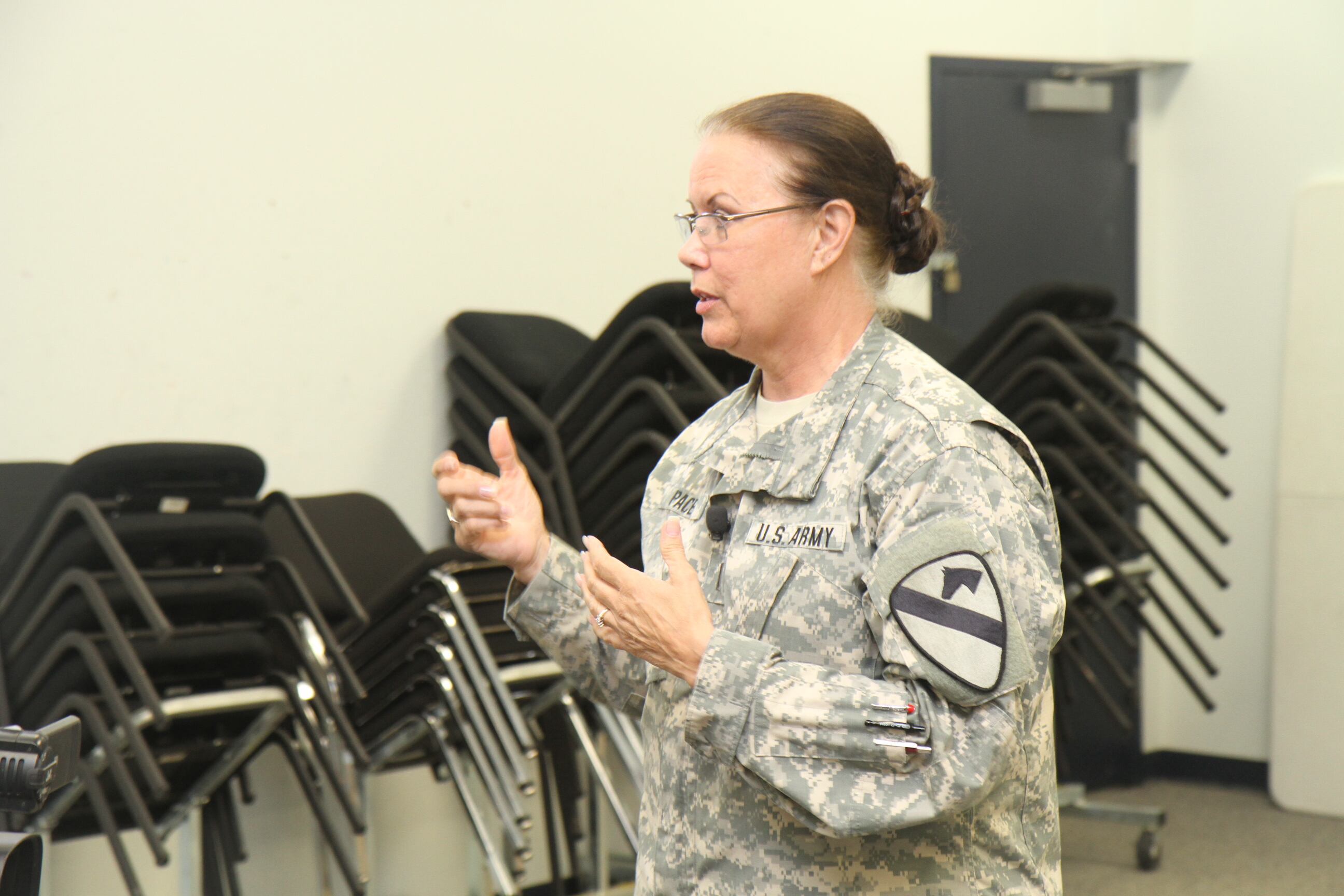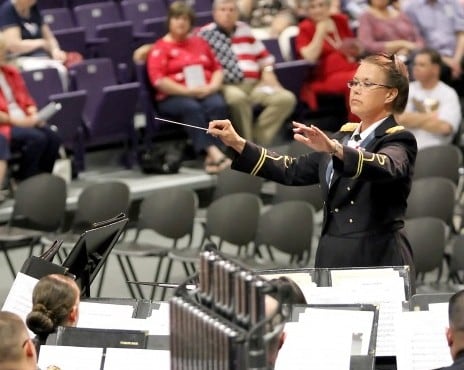The fort, the band and the WAC have since closed up shop, but Pace's career continued through 43 years of active-duty service. Recognized as the longest-tenured female warrant officer and the last former member of the WAC on active duty, she plans to retire in a Friday afternoon ceremony at Fort Hood, Texas, where she served as bandmaster for the 1st Calvary Division Band.
Five things you should know about Pace, one for each decade during which she donned an Army uniform:
1. An integrated force. The 1970s marked the end of the WAC, born out of World War II personnel needs and offering a self-contained career track to female soldiers who weren't nurses. It included the 14th Army WAC Band, in which Pace played clarinet during her formative Army years.
Along with a musical education, the band offered Pace a look at the way women were treated by the Army at the time.
"That's, I think, when it really, really started to hit me," Pace said in "The Beat of a Different Drummer," a documentary on the band. "What some of the women in the WAC Band went through: Not being able to go to school. Not being able to do the same training as the men, and how different it really, really was for them."
Integration efforts began in earnest midway through the decade: The WAC Band went away in 1976, and the WAC itself was gone by 1978, as women entered the regular force.

Chief Warrant Officer 5 Jeanne Pace began her Army service with the Women's Army Corps in 1972.
Photo Credit: Staff Sgt. Christopher Calvert/Army
2. Try, try again. Pace attended Warrant Officer Candidate School in 1983 but washed out. Two years later she was the school's distinguished honor graduate, according to a 2011 Army news release, en route to becoming the first female warrant officer bandmaster.
"I tell people that my first attempt at warrant was not successful, and I'm OK with that," Pace said in the release. "I think it's a message we need to get to soldiers, that if you have a goal, don't let failure the first time dissuade you from that goal."
3. Passing up retirement. After initially joining the Army on a three-year enlistment as a way to pay for college, Pace re-upped for four more years, then decided around the 10-year mark to stick it out until retirement eligibility. The 20-year milestone came and went in the early 1990s, and Pace had no plans to leave service.
She was about to put in retirement paperwork at the 30-year mark, she said in an Army release issued last month, but was offered chief warrant officer 5 and decided to remain in uniform. She's now reached the 30-year limit for allowable service as a warrant officer.

Pace conducts the God and Country Concert at the University of Mary Hardin Baylor center in June 2013.
Photo Credit: Army
She returned to Fort Hood in 2009 and deployed with III Corps in support of operations Iraqi Freedom and New Dawn from 2010 to 2011.
5. Changing times. This decade has brought further integration of women into traditionally male Army jobs, a far cry from Pace's early days in service.
"My most lethal weapon in basic was an iron," she said in the June news release. "When I think about the past 43 years and see all the changes, it's pretty amazing. The Army's leading the way, and now women have so many more opportunities."




